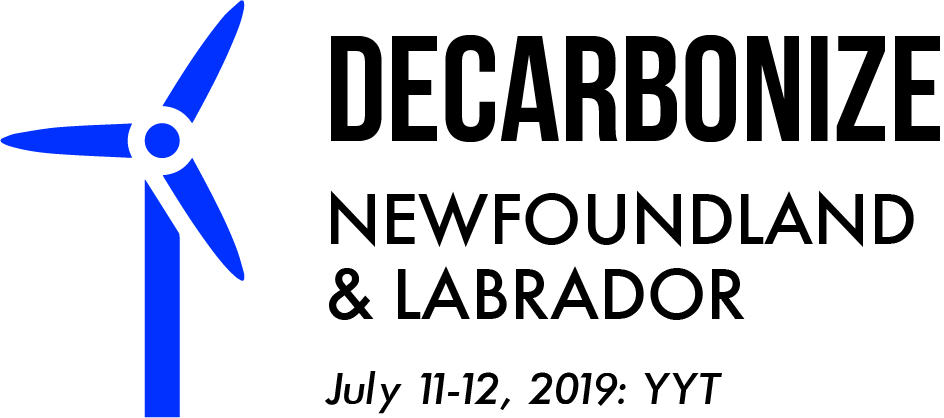In October 2018, the United Nations Intergovernmental Panel on Climate Change issued a stark warning: to avoid catastrophic climate change, we must stop burning fossil fuels and emitting greenhouse gases.
The milestones are specific and daunting. By 2030, all of humankind must reduce the the amount of primary energy derived from oil by 37% relative to 2010 to avoid the worst effects of climate change. Coal use must decrease 78% over that same time frame - and even natural gas, often touted as a ‘bridge fuel’, must drop by 25%. No jurisdiction is exempt from this responsibility, and none will be immune from the effects of climate breakdown if we fail to meet it.
Why Decarbonize NL?
Newfoundland and Labrador has an economy that is largely dependent on oil and natural resources. In 2010, oil royalties accounted for over 30% of provincial revenue. Dramatic swings in volatile commodity prices create severe challenges for social programs and spending. Decarbonization - the process of decoupling human activity from the emission of greenhouse gases - will be a significant challenge, yet it’s one that we must meet, both morally and practically. We cannot assume humanity will fail to decarbonize - and if that is true, then it follows that we cannot assume a robust market will exist for product that hastens climate breakdown.
So far, no strategy has been created that aligns NL’s development with the targets identified in the IPCC report. Therefore, it is up to all of us to come up with an action plan.
DNL’s Mission
The purpose of Decarbonize NL is to unleash the creativity, passion, ingenuity, and entrepreneurial spirit of Newfoundland and Labrador - to bring together enthusiastic members of academia, government, industry, Indigenous communities, non-profits, and the general public to outline what we can do, not just to meet or exceed the IPCC targets in NL, but also to build the prosperous, just, and sustainable economy that we all deserve.
What, where, when?
The Decarbonize Newfoundland and Labrador Conference will take place in St. John’s Newfoundland (YYT) on July 11-12, 2019 at the Signal Hill Campus of Memorial University.
The conference will feature expert panelists from across disciplines. All delegates will be given the opportunity to participate in crafting this vision for the future of our province.
Conference Organizers
This conference is being hosted by the Newfoundland and Labrador Energy Action Research Network [NLEARN], in partnership with academics at Memorial University of Newfoundland. NLEARN is a not-for-profit organization dedicated to decarbonization and multi-sectoral partnerships throughout all economic sectors in Newfoundland and Labrador.
Chairs:
Brett Favaro, Ph.D
Dr. Favaro is a research scientist at Memorial University of Newfoundland. His research spans fisheries, climate change, marine conservation, and environmental law and policy. He lectures widely on applying scientific approaches to creating a sustainable future for the planet. He is the author of The Carbon Code: How You Can Become a Climate Change Hero” (Johns Hopkins University Press).
Delia Warren, P. Eng
Delia holds a Bachelor of Mechanical Engineering (Memorial University) and will complete a Master of Business Administration (MBA) (Memorial University) in summer 2019. She is currently on the board of directors of national non-profit organization Iron & Earth, and director of the Iron & Earth East chapter, the goal of which is to empower oil industry workers to build the renewable energy future. Delia is a founding member of NLEARN and has performed research into the business case for alternative energy development for NL’s off-grid, diesel-powered communities as part of her MBA studies.
Nick Mercer, Ph.D Candidate
Nick holds a Bachelor of Arts in Environmental Studies and a Master of Arts in Environmental Policy (Grenfell Campus: Memorial University). He is currently completing his Ph.D dissertation at University of Waterloo and is the Lead Community Energy Planning Researcher for the NunatuKavut Community Council. He has done extensive research into community energy planning and barriers to renewable energy development in NL. Nick is a founding member of NLEARN.
Program Committee
DNL is supported and organized by a committee with diverse professional backgrounds. Organizers include:
Dr. Angela Carter (https://uwaterloo.ca/political-science/people-profiles/angela-carter)
Dr. Barbara Neis (https://www.mun.ca/soc/people/faculty-profiles/barbara-neis.php)
Dr. John Sandlos (https://www.mun.ca/history/people/faculty/jsandlos.php)
Brandon Copeland (https://www.theurbaneast.com/people)
Joshua Green (https://www.getmysa.com/about.html#timeline)
Dr. Mark Stoddart (https://www.mun.ca/soc/people/faculty-profiles/mark-c-j-stoddart.php)
Keith Drover (https://www.growlerenergy.ca/our-team/)
Maggie Burton (http://www.stjohns.ca/council-member/CouncilloratLarge1)
Conor Curtis (http://ruralresilience.ca/researchers/mun/students/conor-curtis/)
